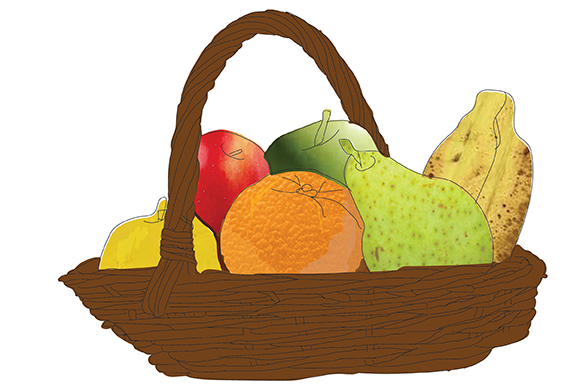Tulane partners with Center for Healthy Food Access

Lee Katz | Staff Artist
Many New Orleans residents are living in a food desert without access to healthy, quality foods needed for a substantial diet.
To alleviate the public health concerns associated with the city’s lack of healthy food availability, Tulane partnered with the Center for Healthy Food Access. The center is a national initiative developed by the Food Trust that works to make sure every child in the country has access to nutritional and affordable food.
The Tulane Prevention Research Center and the Nutrition Section of the Global Community Health and Behavioral Sciences Department within the Tulane School of Public Health and Tropical Medicine brought a convening center in New Orleans. As a convening center, Tulane was given a grant from the Food Trust to facilitate quarterly meetings for one year between nonprofit organizations and provide trainings in business and consumer education.
Tulane brought together eight organizations from around the New Orleans area and is working to help those organizations develop projects that take on all steps of food access from growing, selling, delivering and purchasing healthy options.
Some of these projects include Propeller’s plan to bring fresh produce to corner stores, Second Harvest Food Bank’s cooking classes for families and Backyard Gardener’s Network’s garden youth internship program.
“We are trying to get all these organizations together so that we can think collaboratively and work together to increase access to food in a variety of ways,” Program Manager Brittany Kovacs said.
Kovacs said that the partnership between the university and the center will address healthy food inaccessibility through urban farms, community gardens, food delivery service and nutrition education programs.
Through the center for Healthy Food Access initiative, Tulane is also developing a survey of the organizations that will lead to a toolkit and resource guide. The survey, which will be done at the end of the project, will focus on the different organizations in New Orleans involved in the food system, what they do, who they help and how they’re doing it.
“We hope that some of the information and lessons learned that are distilled in that report can be a model for other cities hoping to take on food issues, both to understand the things they might want to consider taking on with public policy and nonprofit ventures, but then also how this sets the table for collaboration for different groups,” Brian Lang, director of the National Campaign for Healthy Food Access, said.
The Food Trust developed the Healthy Food Initiative through the support of the Robert Wood Johnson Foundation. The foundation involved Tulane after a long-standing relationship with the university that dates back to 2007.
“So as we received funding … to get started with the center, as we looked around the country at some of our long-standing partners about places where we can do some collaborative work with these resources that would be able to demonstrate results in a short period of time, it made sense to go to some of the places where we had great relationships, as such we reached out to … Tulane,” Lang said.
The initiative itself is operating on various levels and combines the efforts of Tulane, city organizations and the Food Trust. While each group involved brings a different service to the table, all are passionate about providing quality food to the people who call New Orleans home.
“Food is just so central to our culture, to everyone’s culture…,” Land said. “Food is something that can bring people together when they might be feeling a little apart.”
Leave a Comment
Your donation will support the student journalists of Tulane University. Your contribution will allow us to purchase equipment and cover our annual website hosting costs.


Catherine Gans • Apr 20, 2017 at 4:00 pm
Hi Emily, thank you for sharing our story with the Tulane community! A quick correction – it’s Propeller with an e, not an o.